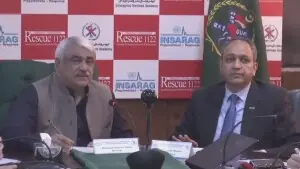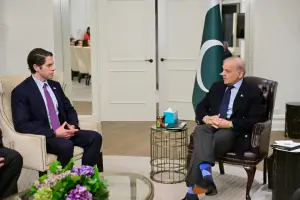Pakistan, India swap lists of inmates, nuclear installations
2 min readPakistan and India on Saturday exchanged lists of prisoners in each other’s custody as well as information of nuclear sites as part of the various agreements between both countries.
According to a statement issued by the Foreign Office, Pakistan shared a list of 628 Indian prisoners in Pakistan – including 51 civilians and 577 fishermen – with the Indian High Commission in Islamabad.
The Indian government also shared the list of 355 Pakistani prisoners in India with the High Commission for Pakistan in New Delhi. About 282 inmates on the list are civilians, while 73 are fishermen.
“This step is consistent with clause (i) of the Consular Access Agreement between Pakistan and India, signed on 21 May 2008, under which both countries are required to exchange lists of prisoners in each other’s custody twice a year, on 01 January and 01 July, respectively,” said the FO statement.
Last year in July, Pakistan shared with the Indian High Commission in Islamabad a list of 609 Indian prisoners that include 51 civilians and 558 fishermen. India simultaneously had shared the list of 345 Pakistani prisoners in India that include 271 civilians and 74 fishermen with the High Commission for Pakistan in New Delhi.
Moreover, both the countries also exchanged the list of nuclear installations and facilities.
Pakistan handed over the list of nuclear sites to the Indian High Commission a representative at the foreign affairs ministry while India gave its list of nuclear installations and facilities to a representative of the Pakistan High Commission.
“The lists were exchanged in accordance with Article-II of the Agreement on Prohibition of Attacks against Nuclear Installations and Facilities between Pakistan and India, signed on 31 [of] December 1988 and ratified on 27 [of] January 1991,” it read.
The agreement provides, inter alia, that both countries should inform each other of their nuclear sites within the definition of the agreement on January 1 of each calendar year. This practice has been followed consecutively since January 1, 1992, the FO added.
For the latest news, follow us on Twitter @Aaj_Urdu. We are also on Facebook, Instagram and YouTube.


























Comments are closed on this story.